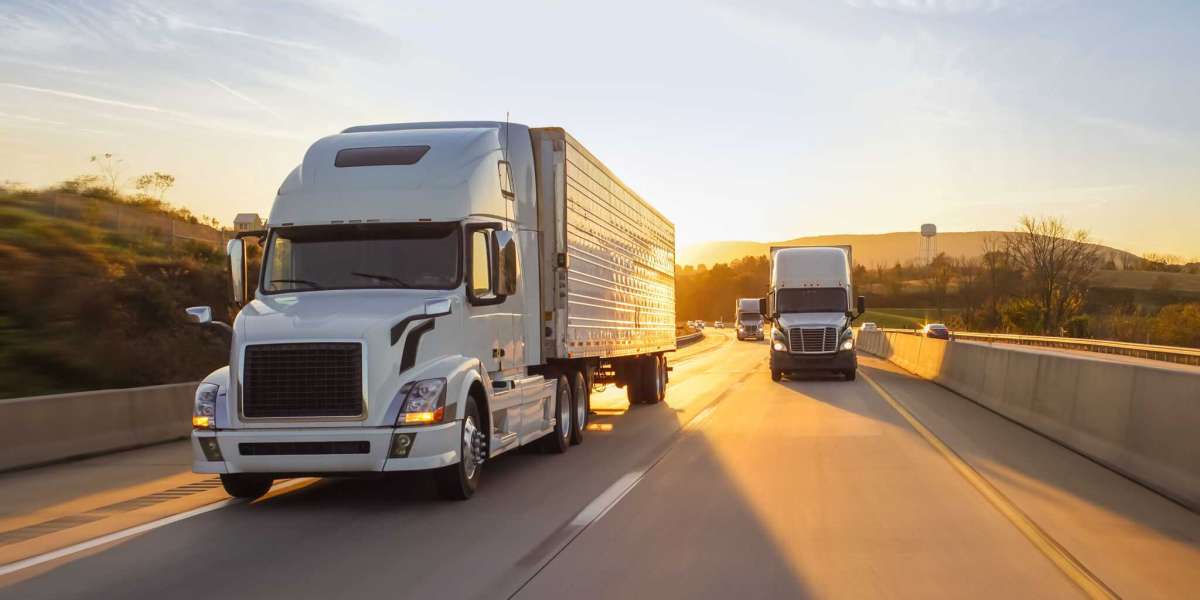In today’s fast-paced world, dispatch services play a crucial role in ensuring the seamless movement of goods, services, and people. Whether it’s managing a fleet of trucks, coordinating emergency services, or streamlining delivery routes, dispatching is an indispensable function across various industries. This guide provides an in-depth look at dispatch services, their applications, benefits, and the technologies driving their evolution.
What Are Dispatch Services?
Dispatch services involve the coordination and management of resources, personnel, and vehicles to ensure timely and efficient delivery of goods or services. Dispatchers act as the central hub, receiving requests, assigning tasks, and monitoring operations to achieve optimal performance. From freight and logistics to emergency response and ride-sharing platforms, dispatch services are integral to numerous sectors.
Types of Dispatch Services
Freight and Logistics Dispatch:
Freight dispatchers manage the transportation of goods, ensuring shipments are picked up and delivered on time. They work closely with drivers, carriers, and shippers to coordinate schedules and resolve issues.
Emergency Services Dispatch:
Dispatchers in emergency services, such as police, fire, and medical response, are responsible for routing personnel to the scene of an incident. They operate under high-pressure situations, prioritizing calls based on urgency and resource availability.
Delivery Dispatch:
Companies like courier services and food delivery platforms rely on dispatchers to assign orders to drivers, optimize routes, and ensure timely deliveries.
Taxi and Ride-Sharing Dispatch:
Dispatch systems in this category connect passengers with available drivers, often using advanced algorithms to minimize wait times and maximize efficiency.
Field Service Dispatch:
Dispatchers in this domain coordinate technicians, repair personnel, or service providers to handle maintenance, installations, or repairs.
Key Responsibilities of a Dispatcher
Dispatchers play a pivotal role in operational success. Their responsibilities include:
Task Assignment:
Matching tasks or deliveries to the most suitable personnel or vehicles.
Route Optimization:
Planning the most efficient routes to save time and reduce costs.
Real-Time Communication:
Keeping constant communication with drivers or service providers to relay updates and address issues.
Problem Solving:
Resolving logistical challenges, such as delays, cancellations, or equipment failures.
Tracking and Monitoring:
Using GPS and other tools to monitor the progress of deliveries or services and ensure adherence to schedules.
Benefits of Dispatch Services
Improved Efficiency:
Streamlined coordination ensures resources are utilized optimally, reducing downtime and delays.
Cost Savings:
Efficient route planning and task allocation minimize fuel consumption, labor costs, and operational waste.
Enhanced Customer Satisfaction:
Timely deliveries and prompt responses improve customer experience and loyalty.
Better Resource Management:
Dispatch systems allow organizations to allocate resources effectively, ensuring no overuse or underuse.
Scalability:
Automated dispatch solutions enable businesses to scale operations without a proportional increase in overhead costs. more
Technologies Driving Dispatch Services
The evolution of dispatch services is largely driven by advancements in technology. Here are some key innovations:
GPS and Telematics:
Real-time tracking allows dispatchers to monitor vehicle locations, assess traffic conditions, and reroute drivers as needed.
AI and Machine Learning:
Algorithms analyze data to optimize task assignments, predict delays, and improve overall efficiency.
Cloud-Based Platforms:
Cloud technology facilitates remote access, data sharing, and collaboration among teams.
Mobile Apps:
Mobile applications enable drivers and field personnel to receive updates, report issues, and stay connected with dispatch centers.
Automation Tools:
Automated dispatch systems reduce manual tasks, such as scheduling and route planning, improving accuracy and speed.
Data Analytics:
Analyzing operational data helps organizations identify inefficiencies, track performance metrics, and make informed decisions.
Challenges in Dispatch Services
Despite the many benefits, dispatch services come with their own set of challenges:
High Pressure:
Dispatchers often operate under tight deadlines and high-stakes situations, which can be stressful.
Resource Constraints:
Limited availability of vehicles, personnel, or equipment can hinder operations.
Technological Dependence:
Over-reliance on technology makes systems vulnerable to outages or cyberattacks.
Dynamic Variables:
Factors such as weather, traffic, and last-minute cancellations can disrupt plans.
Training Requirements:
Effective dispatching requires skilled personnel who can handle complex scenarios and use advanced tools.
Tips for Optimizing Dispatch Services
Invest in Technology:
Leverage advanced dispatch software and tools to streamline operations and improve accuracy.
Train Your Team:
Provide comprehensive training to dispatchers to enhance their problem-solving and communication skills.
Focus on Communication:
Establish clear and open communication channels between dispatchers, drivers, and customers.
Monitor Performance:
Regularly analyze performance metrics to identify areas for improvement.
Adapt to Change:
Be prepared to adjust plans dynamically to accommodate unexpected challenges.
The Future of Dispatch Services
The dispatch industry is poised for significant growth and transformation like freightdispatchservices.com. Emerging technologies, such as autonomous vehicles and drones, are expected to revolutionize logistics and delivery services. Additionally, the integration of predictive analytics and Internet of Things (IoT) devices will enhance the efficiency and reliability of dispatch operations.
Sustainability is also becoming a key focus, with organizations exploring eco-friendly solutions, such as electric vehicles and optimized route planning, to reduce their environmental impact.
Conclusion
Dispatch services are the unsung heroes of modern logistics, ensuring the smooth functioning of industries ranging from transportation to emergency response. By leveraging cutting-edge technologies and adopting best practices, businesses can optimize their dispatch operations to achieve greater efficiency, cost savings, and customer satisfaction. As the industry continues to evolve, dispatch services will remain a critical component of a connected and fast-moving world.








